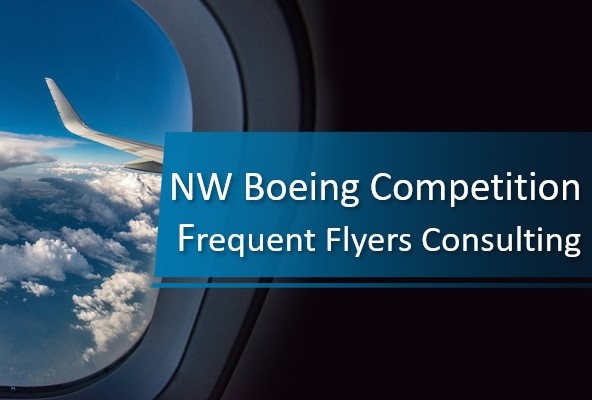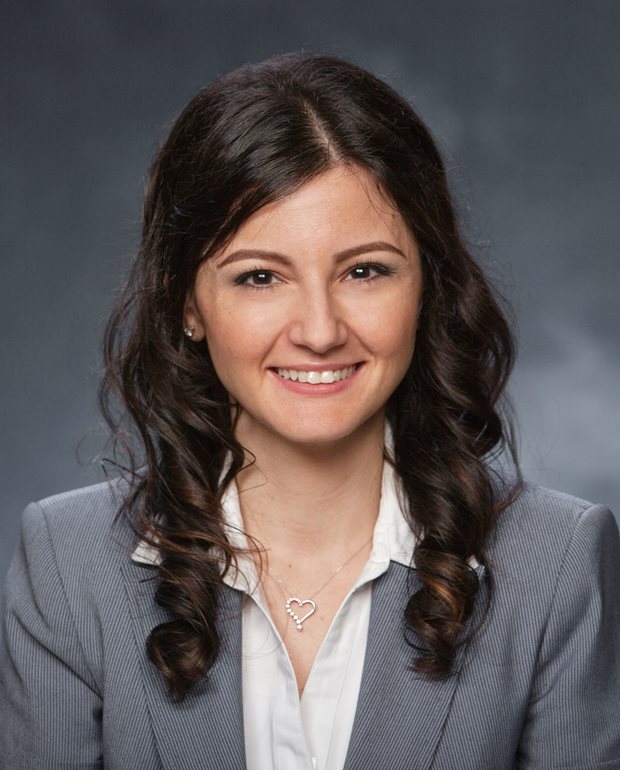
In the second year that the University of Washington Bothell entered a Boeing-sponsored business case competition, a team of Supply Chain Management students finished a close second, winning professional experience and industry exposure.
The five-member team calling itself Frequent Flyers Consulting was one of three teams from UW Bothell along with five from the UW in Seattle that competed in the first round of the Boeing Northwest Case Competition. Judges said it was a close call, with a team from UW’s Foster School of Business winning first place. That team went on to compete in the second round against other colleges in Washington and Oregon.
The annual Boeing competition challenges undergraduates to tackle real-world scenarios. Normally, the event is held at the Museum of Flight in Seattle. The competition took place online this year because of the coronavirus pandemic.
Disaster planning

Fitting this year’s apocalyptic tone, the 2020 scenario asked students to respond to a “what if” forecast of a likely eruption of Mount Fuji. Volcanic ash and a tsunami would cause long-term disruption in Japan, one of Boeing’s major suppliers. How could Boeing continue receiving the parts it needs to build planes?
The scenario was presented to teams Oct. 28. They had a week to research and analyze the situation, write a report and prepare a 20-minute presentation.
“It was a pretty intense week. We really focused because we wanted to show what we could do,” said Gabriel Simon, the team leader, who said the team members spent about 65 hours analyzing data and resolving issues — all by teleconference.
“Knowing that we could do this much work and have such a good product out of it was what we were really going for,” he said.
Supply chain management

All of the Frequent Flyers are Supply Chain Management majors, at the least. Team lead Simon also is majoring in Management Information Systems. The team’s logistics director, Kyra Block, is double majoring in Marketing. Risk analyst Joshua Campagnaro also is majoring in Finance. Completing the team are Janny Suen as resource director and Jason Wu as sourcing supervisor.
Simon said the judges noted how well Frequent Flyers analyzed costs and found the break-even point. Most of that work was done by Campagnaro. The team also identified suppliers in other parts of the world and compared the costs of shipping by cargo ship or jet. As it turns out, the best transportation method depends on the part needed.
Simon said he learned how attention to detail can help him find aspects that others might overlook. He also learned about working in teams. “If you have one mindset and you can get everyone on that mindset, you can be successful.”
Simon, a junior, was encouraged to take part in the competition by Kaely Nelson, a 2019 graduate who now works for Tesla. Looking ahead to competing next year, Simon expects it will help when he applies for the MBA program at the Foster School of Business and when he looks for a job. “It’s going to make me stand out.”
Other team members agree the opportunity is invaluable.
“This has been huge for me as a first-gen college student, also as a student coming from Cambodia where there are very limited educational opportunities like the Boeing Case Competition,” said Suen, a senior.
Block, a junior, said the experience was “fulfilling in both a competitive and creative aspect.”
And as Wu, a senior, pointed out, “it was a great opportunity to learn things that will never be taught in any classroom.”
For all these reasons, Campagnaro, a senior, encouraged “future UW Bothell students to participate in this event in the coming years.”
Making a name

UW Bothell’s School of Business launched Supply Chain Management as an option on the Business Administration degree in 2018. Last year was the first time UW Bothell students entered the Boeing competition. They did not finish in the top three.
Neither a course requirement nor a function of the Supply Chain Management Club, the competition is for students who voluntarily come together because they want an additional, intense educational experience. It’s open to any student and frequently draws finance majors as well, said Assistant Professor Gülru Özkan-Seely, who advised the teams.
The faculty is excited that the young Supply Chain Management program is building a reputation, said Özkan-Seely. Graduate-level courses might be possible in the future, she said.
In addition to giving students feedback from a panel of supply chain professionals, the competition also gives Boeing a look at some of the best upcoming talent in the area, said Surya Pathak, a professor in the School of Business and coordinator for Operations Management & Information Systems.
“It’s a fantastic thing that Boeing does for developing students as well as for themselves,” he said.
When Pathak started at UW Bothell in 2008, there were just a couple of courses in operations management. With additional faculty, including Özkan-Seely and Associate Professor Deanna Kennedy, the school has been able to expand the curriculum.
Excellence is the product
In addition to the curriculum, the faculty developed relationships with Boeing and other businesses in the area — Microsoft, Amazon, T-Mobile — that give students opportunities for internships and community-based learning, Özkan-Seely said.
Since the first cohort of 14 Supply Chain Management students in 2018, nearly 100% of graduates have been placed into career positions, Pathak said.
The three UW Bothell teams this year represented half of all the students in the Supply Chain Management cohort. Just participating gives students a professional experience they can list on a resume, which gives them credibility, Pathak said.
It builds the school’s reputation, too, among incoming students and industry professionals.
“We want to become a top supply chain undergraduate program in the country, not just the region,” Pathak said. “All of this helps us toward that goal.”



